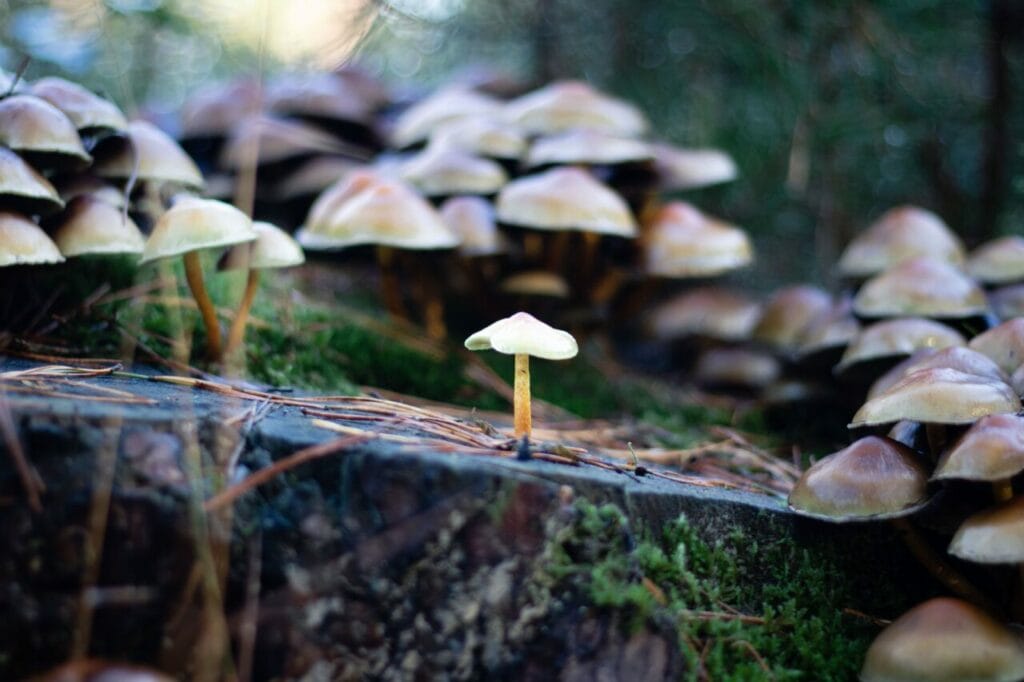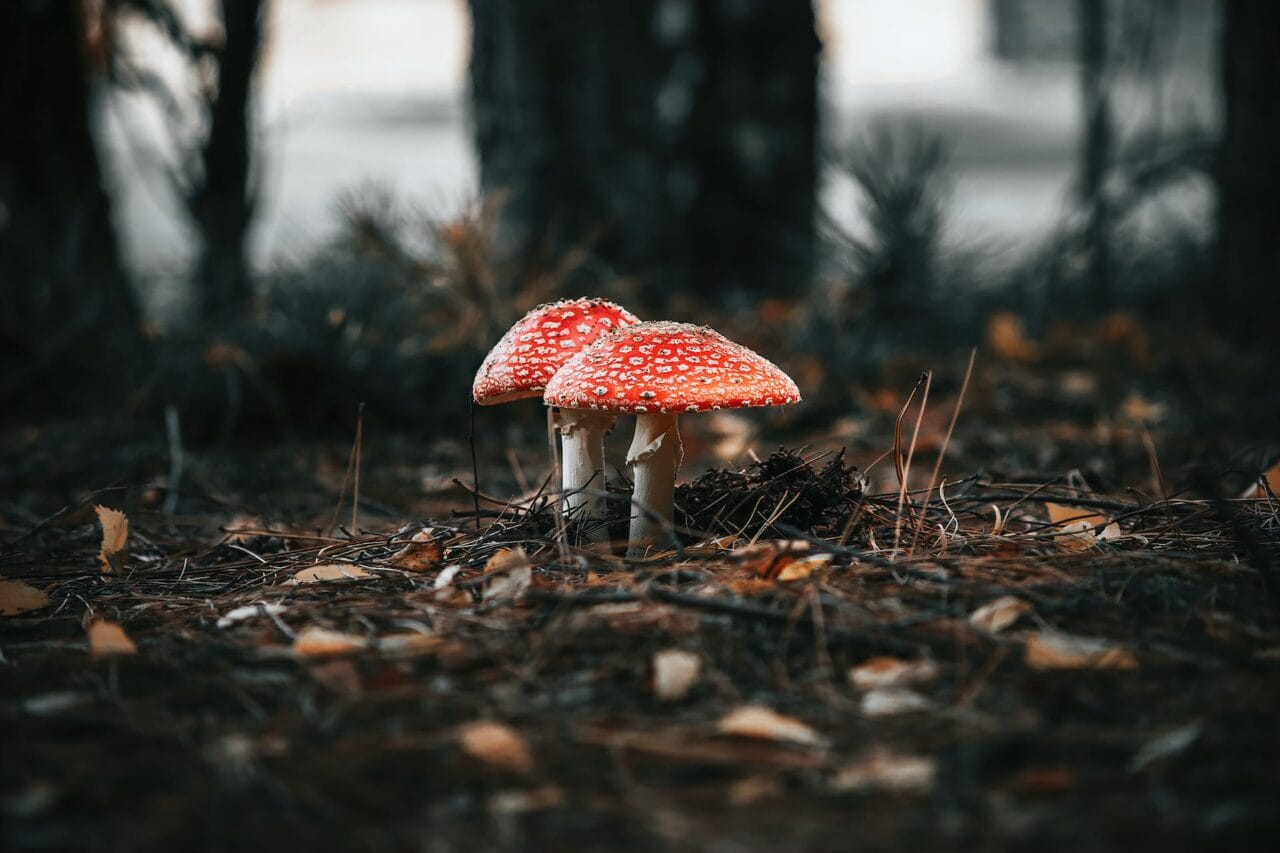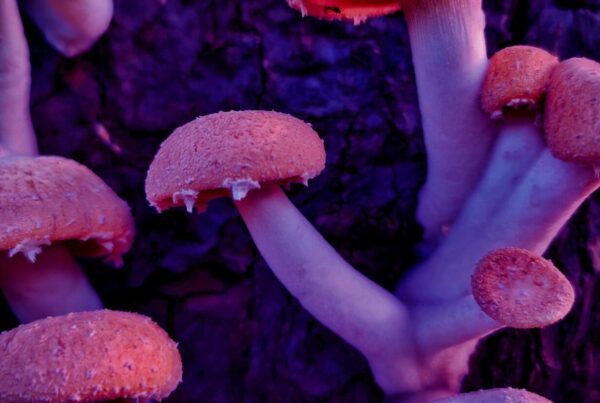Psilocybin, the psychoactive compound in magic mushrooms, is increasingly garnering attention due to its potential mental health benefits, such as alleviating anxiety and combating addiction. However, access to psilocybin remains challenging due to the limited availability of laboratories and shroom delivery services, along with the costs associated with them.
This article will discuss the evolution of psilocybin, its current status, and the potential aid it can provide for those seeking mental health relief.
[toc]Main Takeaways:
- Mushroom cultivation requires considerable effort and careful monitoring to avoid contamination during the inoculation process.
- Psilocybin creates a psychedelic experience by interacting with different brain areas, predominantly the serotonin receptors.
- Psilocybin causes only a minor increase in heart rate, which stabilizes soon after ingestion, and generally does not lead to other negative effects.

Delivering Only the Finest Quality Magic Mushrooms
Magic mushrooms naturally grow in diverse environments such as manure-rich fields, leafy temperate forests, grasslands, and woodlands. Throughout history, people have ventured into these environments to collect these fungi for medicinal purposes or to use them in spiritual and religious rituals.
Conventional Method
The traditional act of foraging for mushrooms in their natural habitats has become less common today. This shift can be attributed to the emergence of alternatives such as cultivation or the opportunity to buy magic mushrooms online.
Wild mushrooms are generally less potent than those grown in a lab, which are carefully cultivated under controlled conditions. Additionally, foraging in the wild carries the risk of inadvertently picking a poisonous species.
Contemporary Method
The production of shrooms starts with a complex procedure that necessitates meticulous care, which includes nurturing spores to maturity.
To ensure no potential contamination during the inoculation phase, a considerable amount of time and meticulous attention to detail is necessary. Once the mushrooms are ripe for harvest, they are generally dried by labs or cultivators to improve their shelf life. Fresh mushrooms have a lifespan of only a few days, while dried ones can be stored for several months, if not up to a year.
Manufacturers transform dried mushrooms into various forms such as microdose capsules, edibles, tinctures, and beverages. These products are then distributed across Canada through magic mushroom delivery services.
Harnessing the Advantages of Psilocybe Cubensis or Magic Mushrooms
Researchers conduct clinical trials on mushrooms primarily to explore their impact on mental health and mood disorders, as informed by anecdotal accounts. There are many ongoing studies examining these effects, from microdosing with capsules to immersive mushroom trips with dried mushrooms or chocolate edibles.
Upon consumption, psilocybin is metabolized into psilocin, which functions similarly to serotonin, a neurotransmitter central to mood regulation. It engages with various brain regions, particularly the serotonin receptors, to initiate a psychedelic journey.
Those who have undergone psilocybin therapy often report significant transformations that extend beyond heightened senses and visual modifications. These experiences can lead to a substantial shift in self-perception and profound personal outlook changes, often accompanied by deep insights.
Depression and Suicidal Tendencies
In a study featured in the Journal of Psychopharmacology, the effects of a psychedelic experience on individuals battling depression and suicidal thoughts were examined. Most participants deemed their encounter with psilocybin highly impactful and emphasized its potential influence on their lives. Such levels of satisfaction could enhance therapy effectiveness, considering patient engagement’s importance in mental health interventions.
Safety Profile
In addition to examining psilocybin’s effects on depression and anxiety, researchers also study its safety profile. A study in JAMA Psychiatry indicates that participants given psilocybin displayed a minor increase in heart rate and blood pressure two hours post-ingestion. Yet, further analysis using Holter monitoring revealed no significant increase in cardiac arrhythmias risk in the psilocybin group compared to the niacin group. The study also discovered
There is no notable emotional distress among users.





